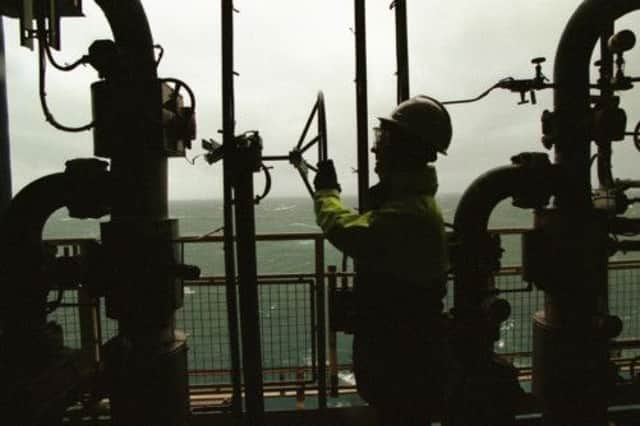Scottish independence: ‘Oil can plug spending gap’


Carl Emmerson, the deputy director of the Institute for Fiscal Studies (IFS), said that an independent Scotland would inherit spending of £1,000 more per head of population than the UK average, but would only have the same tax base.
He said the higher level of spending was because “Scotland has an older population” and more people on benefits.
Advertisement
Hide AdAdvertisement
Hide AdHe added that the NHS and schools in Scotland receive proportionately more money than the rest of the UK.
Speaking to the Scottish affairs select committee, he said that if the oil revenues were not used to plug the gap then the Scottish Government would be forced to raise taxes or slash public spending.
“Something would need to be done to close that gap,” he said.
However, Mr Emmerson warned that oil and gas revenues are a diminishing resource and would only buy the Scottish Government more time to rebalance its economy.
“The North Sea oil money would give Scotland some time top make the adjustment in terms of the deficit it will run,” he told MPs. He said predictions that the gap in tax and spend could be removed in four or five years is “extremely uncertain”.
Mr Emmerson was dismissive of First Minister Alex Salmond’s plans to set up an oil fund similar to the one in Norway and use it to support public expenditure.
“You have your money from oil, you can spend it, but you can only spend it once,” he said.
“I wouldn’t describe it as an oil fund, I would describe it as paying down the debt Scotland would inherit, which would be an attractive option.
Advertisement
Hide AdAdvertisement
Hide Ad“If you do spend it on an oil fund or running down the debt then you would have to increase taxes or cut spending to close the gap,” he said.
However, he said that creating an oil fund or paying off national debt “would be an attractive option” because it “would benefit future generations” and would “sidestep” the uncertainty of oil and gas revenues which could be destabilising if they were relied on for public spending.
Mr Emmerson suggested that a government of an independent Scotland should “treat oil revenues as a windfall”.
The committee also heard from Dr Angus Armstrong, director of Macroeconomic Research, National Institute of Economic and Social Research who told the committee that despite Chancellor George Osborne saying that it was “unlikely” the rest of the UK would agree to a sterling zone, it could be an attractive option for a UK government.
He said that it would be important for the rest of the UK for an independent Scotland to remain prosperous and that it would be “annoying” to have to change currency at the Border.
However, he warned that failure to create a successful currency zone could lead to a “flight of capital” with people taking their savings out of Scotland and putting them in England which happened when Slovakia broke away from the Czech Republic.